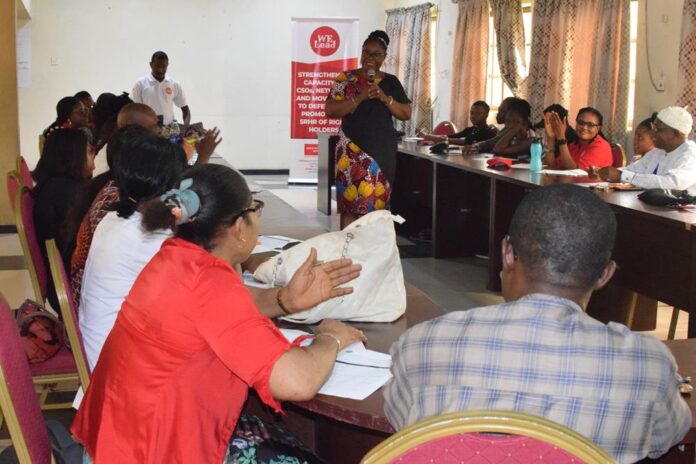The National Human Rights Commission (NHRC), says the country needs more experts in sign language interpretation.
Cross River State Coordinator of NHRC, Mr Remi Ajuga, disclosed this in Calabar, during a one-day meeting for dissemination of Sexual, Reproductive and Health Rights service delivery and referral directory.
The engagement was organised by the Girls Power Initiative in the state in partnership with the ‘WeLead’ project.
Ajuga, who was a resource person said the Courts, Police departments, Social organisations and all Government Offices, should be encouraged to train sign language interpreters to help them attend to the speech-challenged persons.
“This call is in line with the Sustainable Development Goals (SDG), of the World Health Organisation (WHO), which calls for action to end inequality and ensure that all enjoy justice, health and wellbeing to the extent that no one is left behind.
“Training large numbers of sign language interpreters will allow for greater inclusiveness of most of those challenged by an inability to talk.
“We have had several of such Nigerians come to the Commission to complain but since there’s a dearth of sign language interpreters, they have hardly been attended to satisfactorily. They have also had such a lack of satisfactory attention in other offices.
“So if we have such experts, they will readily interpret their complaints for better attention”, he said.
Also speaking, the head of the Gender Desk at the Cross River State Police Command, SP Philo Modor, said the need for sign language experts has become imperative.
She lamented the dearth of sign language experts in the country and called for training opportunities for more Nigerians as a way of assuaging the pains and feelings of the challenged.
Earlier in her welcome address, the Head of GPI programmes, Ndodeye Bassey Obongha, said besides disseminating the SRHR directory, they also hope to evaluate their activities under the project for the outgoing year.
She said they don’t need audio services for people whose rights have been violated and so they are specifically putting up organisations and institutions that can provide the needed services.
The Girls’ Power Initiative (GPI) Calabar Centre, with support from HIVOS, is implementing the WeLead Project in Cross River State.
It focuses on four specific groups of young women: those living with HIV, those with disabilities, those who have diverse sexual orientations, and those affected by displacement.
The program puts these young women as rights holders in the driver’s seat and supports them to make sustainable changes for their SRHR.
The service directory includes; Centres providing SRHR services, that could be accessed by rights holders and other members of the public in cases of gender-based violence, STI treatment, contraceptive access, cancer and self-examination, among others.
The Will


